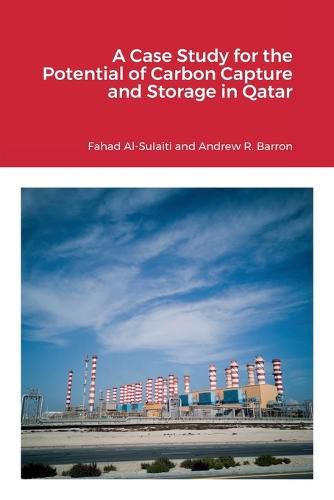Readings Newsletter
Become a Readings Member to make your shopping experience even easier.
Sign in or sign up for free!
You’re not far away from qualifying for FREE standard shipping within Australia
You’ve qualified for FREE standard shipping within Australia
The cart is loading…






This title is printed to order. This book may have been self-published. If so, we cannot guarantee the quality of the content. In the main most books will have gone through the editing process however some may not. We therefore suggest that you be aware of this before ordering this book. If in doubt check either the author or publisher’s details as we are unable to accept any returns unless they are faulty. Please contact us if you have any questions.
This book collates research data on the current global implementation of carbon capture, utilization and storage (CCUS), analyses the challenges of CO2 management in the long-term, as well as locates the opportunities of such technologies for the context of specific countries, in this case being Qatar. The different types of CO2 sequestration technology are defined, their global implementation discussed, and other key characteristics measured. The study primarily utilizes a systematic review methodology to identify the latest trends in CCUS, as well as analyzing current technological, socio-economic, and political conditions using publicly available sources. Findings highlighted from the literature review are compiled into a survey, which is aimed at specifically targeted specialist professionals in the CCUS industry who can provide input about the applicability of particular CCUS solutions to Qatar. A deeper analysis of this methodology combines desktop and survey information for an analysis of the topic, including the specific suitability of technologies for Qatar, current initiatives, as well as providing insight on how the identified systems can be integrated for an infrastructure level carbon sequestration system. As part of the Qatar-based discussion, analysis findings are critically examined in relation to their economic feasibility in comparison to current environmental socioeconomic drivers, i.e., the vital economic out-put of the country's dependence on the oil and gas sector, political threats from international relations and global climate change, as well as the lack of sustainable food and water sources in Qatar.
$9.00 standard shipping within Australia
FREE standard shipping within Australia for orders over $100.00
Express & International shipping calculated at checkout
This title is printed to order. This book may have been self-published. If so, we cannot guarantee the quality of the content. In the main most books will have gone through the editing process however some may not. We therefore suggest that you be aware of this before ordering this book. If in doubt check either the author or publisher’s details as we are unable to accept any returns unless they are faulty. Please contact us if you have any questions.
This book collates research data on the current global implementation of carbon capture, utilization and storage (CCUS), analyses the challenges of CO2 management in the long-term, as well as locates the opportunities of such technologies for the context of specific countries, in this case being Qatar. The different types of CO2 sequestration technology are defined, their global implementation discussed, and other key characteristics measured. The study primarily utilizes a systematic review methodology to identify the latest trends in CCUS, as well as analyzing current technological, socio-economic, and political conditions using publicly available sources. Findings highlighted from the literature review are compiled into a survey, which is aimed at specifically targeted specialist professionals in the CCUS industry who can provide input about the applicability of particular CCUS solutions to Qatar. A deeper analysis of this methodology combines desktop and survey information for an analysis of the topic, including the specific suitability of technologies for Qatar, current initiatives, as well as providing insight on how the identified systems can be integrated for an infrastructure level carbon sequestration system. As part of the Qatar-based discussion, analysis findings are critically examined in relation to their economic feasibility in comparison to current environmental socioeconomic drivers, i.e., the vital economic out-put of the country's dependence on the oil and gas sector, political threats from international relations and global climate change, as well as the lack of sustainable food and water sources in Qatar.